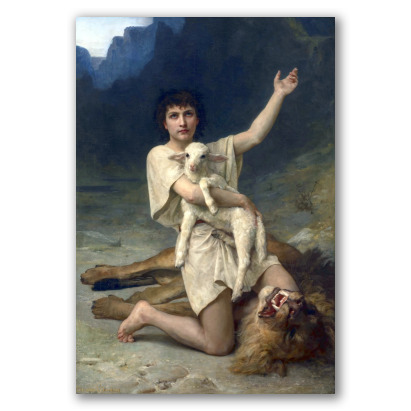Note: If you wish to receive, via e-mail, (1) my weekly newsletter or (2) daily copies of these posts, notify me at rrbates1951@gmail.com and indicate which you would like. I promise not to share your e-mail address with anyone. To unsubscribe, send me a follow-up email.
Spiritual Sunday
Today in church we get to read together the 23rd psalm, which is to say, Old Testament poetry of the highest order. I remember my sophomore English teacher having us memorize it at the Sewanee Military Academy and it has resonated with me ever since.
I share it today—the King James version—along with a George Herbert poem that it inspired. Here’s the psalm:
The LORD is my shepherd; I shall not want. He maketh me to lie down in green pastures: he leadeth me beside the still waters. He restoreth my soul: he leadeth me in the paths of righteousness for his name’s sake. Yea, though I walk through the valley of the shadow of death, I will fear no evil: for thou art with me; thy rod and thy staff they comfort me. Thou preparest a table before me in the presence of mine enemies: thou anointest my head with oil; my cup runneth over. Surely goodness and mercy shall follow me all the days of my life; and I will dwell in the house of the LORD forever.
I like this Carol Romen’s exploration of the poem’s imagery in a Guardian article. As she sees it, there are two dominant metaphors, one pastoral, the other military:
The pastoral one concludes in verse four, when the speaker is conducted through the Valley of the Shadow of Death, helped by the shepherd’s rod and staff. After that, imperial and somewhat militaristic symbolism replaces pastoral. The shepherd becomes the King – describing the course of David’s own career – and the concerns are no longer earthly and pastoral but eschatological. Notice the abrupt change from third person “he” to vocative “thou” in the middle of verse four, the point at which the speaker is most in need of comfort. In the slow-gathering crescendo of that verse, the double possessive (“the valley of the shadow of…”), normally so clumsy-sounding in English, plays a major role. The stroke of genius, though, is in four words: “my cup runneth over”. As for verse six, perhaps the Tyndale version [as opposed to the King James version] is more artistically satisfying, as well as more heart-felt: by giving us “thy loving-kindness and mercy” for a generalized “goodness and mercy,” the pastoral imagery of the opening, in all its quiet tenderness, is evoked once more.
Herbert certainly focuses more on the pastoral than on the military elements of the psalm. As always with the poet, the real foe is himself and his doubts. If he can but continue to have faith in God’s “sweet and wondrous love,” however, all will be well.
The God of love my Shepherd is,
and he that doth me feed;
while he is mine and I am his,
what can I want or need?
He leads me to the tender grass,
where I both feed and rest;
then to the streams that gently pass,
in both I have the best.
Or if I stray, he doth convert,
and bring my mind in frame,
and all this not for my desert,
but for his holy Name.
Yea, in death’s shady black abode
well may I walk, not fear;
for thou art with me, and thy rod
to guide, thy staff to bear.
Surely thy sweet and wondrous love
shall measure all my days;
and as it never shall remove,
so neither shall my praise.


